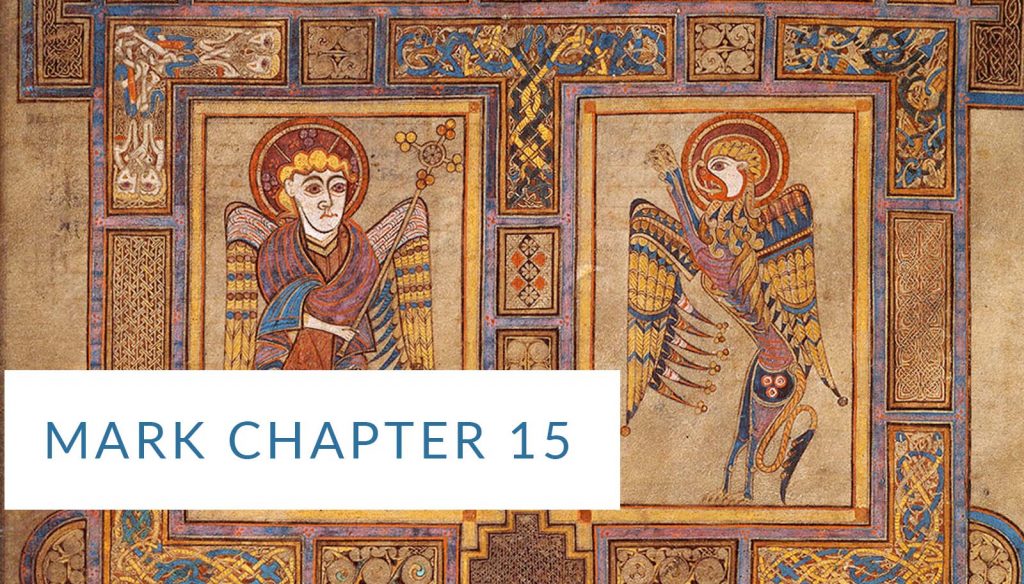This week’s readings are all from Mark 15-16. Click here to see a full listing of each day’s reading and the full chapter of Mark 15-16. Full readings of each day’s smaller segments of the readings will be posted on this site during the week.
Today's Reading
33 Now when it was noon, darkness came over the whole land until three in the afternoon. 34 Around three o’clock Jesus cried out with a loud voice, “Eloi, Eloi, lema sabachthani?” which means, “My God, my God, why have you forsaken me?” 35 When some of the bystanders heard it they said, “Listen, he is calling for Elijah!” 36 Then someone ran, filled a sponge with sour wine, put it on a stick, and gave it to him to drink, saying, “Leave him alone! Let’s see if Elijah will come to take him down!” 37 But Jesus cried out with a loud voice and breathed his last. 38 And the temple curtain was torn in two, from top to bottom. 39 Now when the centurion, who stood in front of him, saw how he died, he said, “Truly this man was God’s Son!” 40 There were also women, watching from a distance. Among them were Mary Magdalene, and Mary the mother of James the younger and of Joses, and Salome. 41 When he was in Galilee, they had followed him and given him support. Many other women who had come up with him to Jerusalem were there too.
42 Now when evening had already come, since it was the day of preparation (that is, the day before the Sabbath), 43 Joseph of Arimathea, a highly regarded member of the council, who was himself looking forward to the kingdom of God, went boldly to Pilate and asked for the body of Jesus. 44 Pilate was surprised that he was already dead. He called the centurion and asked him if he had been dead for some time. 45 When Pilate was informed by the centurion, he gave the body to Joseph. 46 After Joseph bought a linen cloth and took down the body, he wrapped it in the linen and placed it in a tomb cut out of the rock. Then he rolled a stone across the entrance of the tomb. 47 Mary Magdalene and Mary the mother of Joses saw where the body was placed. (Mark 15:33-47 NET)
“Someone ran, filled a sponge with wine vinegar, put it on a staff, and offered it to Jesus to drink. “Now leave him alone. Let’s see if Elijah comes to take him down,” he said.”
Mark 15:36 NIV
https://mark.bible/mark-15-36
This verse struck me today because the crowd still wants to see a miracle or so it seems. Let’s keep Jesus alive a little longer and see what happens. Was this an act of mercy or an act of cruelty? The crowd still does not understand the significance of this moment.
“My God my God, why have you forsaken me”
My mind has always thought that Jesus was crying out to God because of the physical pain Jesus experienced. The commentary I read raised the point that the spiritual pain Jesus experienced as he who was without sin took on the sins of the world: past, present and future, was far greater than the physical pain. It went on to say that just as our sin is the only thing that can separate us from God, so it was with Jesus at that point as he “carried” our sins as the ultimate living sacrifice and was spiritually separated from His Father, God.
